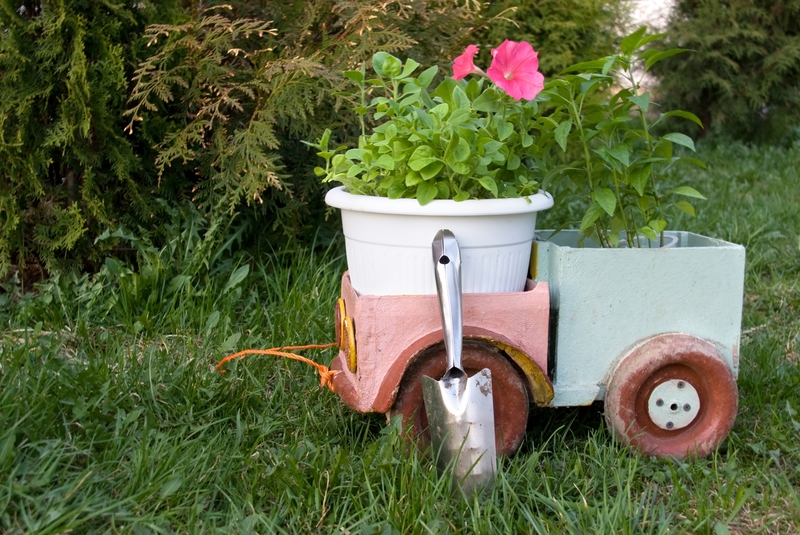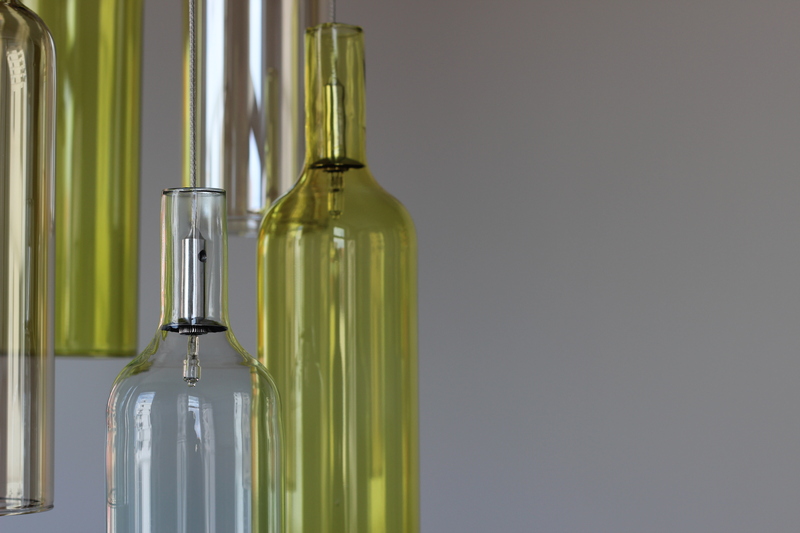Finding Eco-Conscious Methods for Kitchenware Disposal: A Sustainable Guide
As our awareness about environmental issues grows, finding eco-conscious methods for kitchenware disposal has become an essential part of living sustainably. Old pots, pans, glassware, and utensils typically don't just vanish--they often end up in landfills, adding to pollution and resource waste. However, there are innovative and responsible alternatives that enable you to get rid of kitchenware without harming the planet.

Why Eco-Conscious Kitchenware Disposal Matters
Most kitchen products are made from durable materials like ceramic, glass, metal, and plastic. Improperly discarded, these items can take decades--or even centuries--to break down. Moreover, many of them contain coatings, glazes, or chemical treatments that pose risks to soil and water quality. Eco-friendly kitchenware disposal ensures that these items are either recycled, reused, or processed in ways that minimize environmental harm.
Key Environmental Concerns
- Landfill Overflow: Non-biodegradable kitchen items contribute to the global landfill crisis.
- Soil and Water Pollution: Hazardous materials from disposed kitchenware can leach into the environment.
- Resource Waste: Many items thrown away could have been recycled or repurposed, saving precious resources.
Assessing Your Old Kitchenware
Before deciding how to dispose of your kitchenware, it's crucial to assess the condition and material of each item. This step helps you choose the most sustainable route for eco-conscious kitchenware disposal.
Types of Kitchenware Materials
- Metal: Includes stainless steel, aluminum, copper, and cast iron items.
- Glass: Ranging from baking dishes to drinking glasses and jars.
- Ceramic and Porcelain: Plates, mugs, and other pottery.
- Plastic: Utensils, storage containers, and mixing bowls.
- Wood: Cutting boards, spoons, and serving bowls.
- Silicone: Bakeware and kitchen gadgets.
Eco-Conscious Disposal Options for Kitchenware
There's no one-size-fits-all method. The type of kitchenware and its state will determine the best green kitchenware disposal choice. Here are the most environmentally friendly ways to dispose of old kitchen items:
1. Recycling Kitchenware Responsibly
If your kitchenware is made from recyclable materials, kitchenware recycling is a practical and eco-friendly choice. It's important to check with your local waste authority for guidelines, as rules may vary.
- Metals: Most metal pans and utensils (without plastic handles) can be recycled. Stainless steel and aluminum are highly recyclable, often accepted by scrap metal centers.
- Glass: Tempered glass, such as Pyrex, is generally not accepted in standard glass recycling, but some specialized facilities may handle it.
- Ceramics: Plates and mugs are unfortunately usually rejected from municipal recycling due to high firing temperatures. However, they may be accepted by certain construction recycling centers for use as aggregate.
- Plastics: Some plastic kitchenware (e.g., containers with a recycling number) can go in the curbside container, but check for food residue and remove non-recyclable parts.
- Wood and Bamboo: These biodegradable materials can sometimes be composted, especially if untreated. Otherwise, look for specialized wood recycling programs.
2. Donating Usable Kitchenware
One of the simplest eco-conscious methods for disposing of kitchenware is donation. If your items are still functional and in decent condition, consider passing them on to:
- Charity Thrift Stores: Salvation Army, Goodwill, and local nonprofits typically accept pots, pans, dishes, and utensils.
- Homeless Shelters and Community Kitchens: Often in need of serviceable cookware, storage containers, and silverware.
- Refugee Assistance Programs: These groups help newcomers set up households and may gladly accept kitchenware donations.
- Online Gifting Groups: Websites like Freecycle, Buy Nothing Project, or Facebook Marketplace (for free items) can quickly connect you with people who need what you no longer use.
Donating keeps kitchenware in use and diverts waste from landfills--a key tenet of sustainable kitchenware disposal.
3. Upcycling and Repurposing Kitchen Items
Upcycling means giving old kitchenware a new life in creative and practical ways. This not only reduces waste but also saves money.
- Planters: Use deep pots, colanders, or even teapots to plant herbs and succulents.
- Organizers: Cutlery trays or large bowls can become desktop organizers or storage bins.
- Decor: Old mugs and plates can be used in art projects, mosaics, or garden decorations.
- Craft Projects: Turn metal lids into wind chimes or create lamp shades out of old mixing bowls.
Pro Tip: Many upcycling ideas for sustainable kitchenware disposal are easy to find online, and they're particularly popular on platforms like Pinterest or YouTube.
4. Composting Biodegradable Kitchenware
Some kitchenware--such as untreated wooden utensils, bamboo bowls, or chopsticks--can be composted. Break or cut them into smaller pieces and add to your compost heap, where they'll slowly break down and enrich your soil. This is a nature-friendly way to dispose of kitchenware and reduce overall landfill waste.
Special Considerations for Challenging Materials
Nonstick and Coated Cookware
Nonstick pans often contain Teflon or similar coatings, which may release toxic chemicals if incinerated. These are not suitable for recycling or composting. Some manufacturers and specialty disposal programs accept nonstick cookware for safe processing--contact the manufacturer for take-back programs or seek dedicated disposal services.
Broken Glass or Ceramics
Shattered pots, mugs, or Pyrex can't be recycled curbside or donated. Instead:
- Reuse shards in drainage layers of garden pots.
- Offer to art and craft groups for mosaics or decorating projects.
- Wrap securely and dispose in the trash as a last resort, and always alert your waste service for safe handling.
How to Prepare Kitchenware for Eco-Friendly Disposal
To maximize the effectiveness of these eco-friendly kitchenware disposal methods, you should always:
- Clean all items thoroughly before donation or recycling to prevent contamination and increase their chances of acceptance.
- Separate materials (e.g., remove metal handles from glass lids) to make recycling easier and more efficient.
- Research local guidelines by checking your municipal website or calling local recycling centers.
Reducing Kitchenware Waste with Sustainable Choices
The best way to minimize the environmental impact of kitchenware is by extending the life of what you own and making conscious purchases from the outset. Here's how you can make your kitchen habits more sustainable:
- Invest in high-quality, durable kitchen tools that withstand frequent use, reducing the frequency of replacements.
- Avoid disposable and single-use items such as plastic cutlery, polystyrene plates, and cheap non-recyclable plastics.
- Choose brands that offer recycling or take-back programs for their wares.
- Consider renting or borrowing specialty items that you rarely need, instead of purchasing.
Eco-Conscious Shopping Checklist
- Recyclable Materials: Buy kitchenware made from stainless steel, glass, or other materials with clear recycling pathways.
- Biodegradable and Compostable Products: Look for wood, bamboo, or other natural fibers.
- Minimal Packaging: Choose products with little or no plastic packaging and always recycle the packaging responsibly.
- Check for Certifications: Such as "Cradle to Cradle" or "BPA-free," which indicate safer and more sustainable products.
Local Resources for Eco-Conscious Kitchenware Disposal
To make your kitchenware disposal as eco-friendly as possible, connect with resources in your community:
- Municipal Recycling Centers: Learn about accepted materials, drop-off locations, and special collection events for items like scrap metal or ceramics.
- Charity Shop Networks: Many maintain lists of needed items and highlight donation events or pick-up services.
- Online Material Exchanges: Platforms like Craigslist, Freegle, or EcoATM can find new homes for unwanted kitchen goods.
- DIY Repair Cafes: Some communities offer events where broken kitchenware can be fixed instead of thrown away, lengthening its lifespan and preventing unnecessary waste.
Key Takeaways for Greener Kitchenware Disposal
- Assess and sort your kitchenware by material and condition for best results.
- Prioritize reuse and donation for items in working order.
- Investigate recycling options for metals, glass, plastics, and wood where possible.
- Get creative with upcycling or compost biodegradable items.
- Stay informed about local policies to ensure compliance and prevent contamination.
- Choose sustainable products to reduce waste and simplify future disposal.

Frequently Asked Questions about Eco-Conscious Kitchenware Disposal
Q: Can I place all broken kitchenware in the recycling bin?No. Not all kitchenware materials are accepted in traditional recycling streams. For example, most ceramics, tempered glass (like Pyrex), and nonstick cookware require special handling.
Q: What if my kitchenware is only lightly damaged?If items are still usable despite cosmetic issues, consider donating to charities, art groups, or upcycling them for new purposes.
Q: How do I find local recycling guidelines?Visit your city or county's website, use recycling apps like Earth911, or call your waste authority. Guidelines may vary.
Conclusion: Embracing Sustainable Kitchenware Disposal
By choosing eco-conscious methods for kitchenware disposal, we can each play a part in reducing landfill waste and conserving resources. Through recycling, donating, upcycling, and thoughtful purchasing, you can turn the challenge of disposing kitchen items into an opportunity for environmental stewardship.
Start today by evaluating your kitchen drawers and cupboards. With strategic action and a little creativity, you'll find that eco-friendly kitchenware disposal is a practical--and impactful--part of sustainable living.
